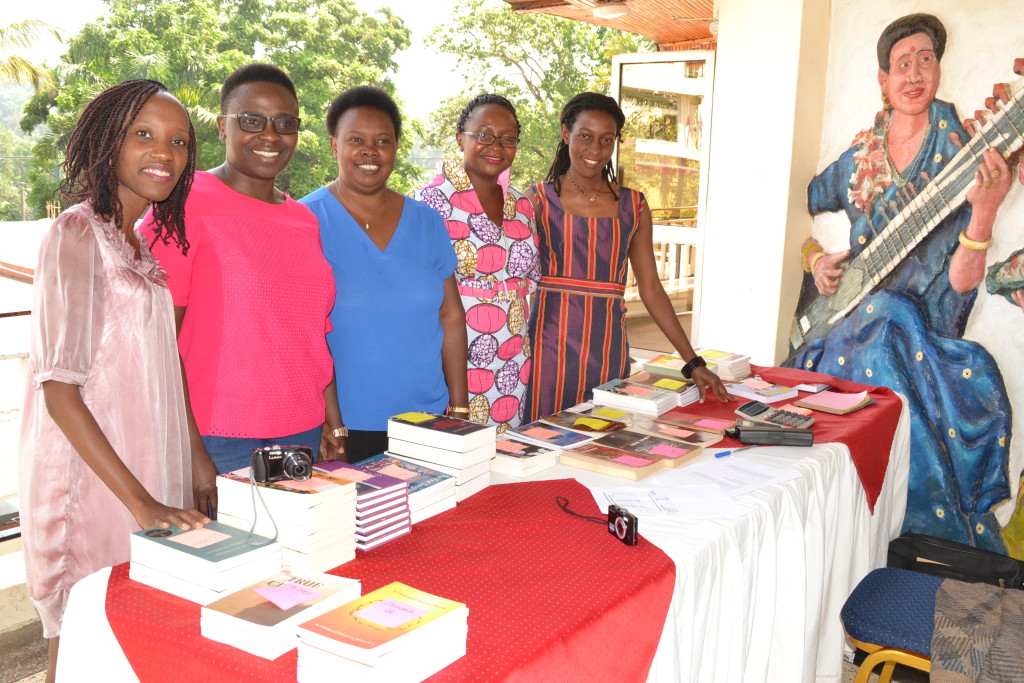
Lining up for books at the African Writers Trust International Conference in Uganda, 2015. Left to right: Melissa Kyeyune, Jennifer Makumbi, Goretti Kyomuhendo, Jackee B Batanda, and yours truly. AWT image
Often I’m asked, besides Chinua Achebe and Amos Tutuola, which other African writers should one read? But the most frequent question is: who are the contemporary African writers? The answer is: very many, living on the continent and the Diaspora, but mentioning names and titles of their works isn’t enough, because sometimes it is hard to find the books, especially if there is no distribution outside the writer’s country of publication. With Amazon, eBay, and other booksellers or publishing outlets that have embraced online publishing in all its forms, can print copies on demand and mail them to readers or provide electronic versions, it is easy to assume books that do not have online presence simply do not exist, and the same applies to books that aren’t distributed wherever they are needed. To a large extent this is what hampers the availability of African literature. Some publishing outfits simply do not have a good distribution plan, others ignore distribution altogether and focus on availing a few copies to people who can make trips to the publishing houses offices or the booksellers in town. Literary works like novels, poetry, short stories and creative nonfiction suffer the most because statistically selling 500-1000 copies of a novel or a poetry book is not good enough, cannot sustain the publishing house, or the author for that matter.
Most publishing houses in Africa rely on textbooks rather than fiction to break even. Some identify stifling laws and taxes on print material leaving the country as the biggest challenge. Apparently, print entering the country is treated favorably. That is why “foreign books” or those printed abroad are easier to find than local books. And that is why to date some publishers will still print books in India, Singapore, or China than in the country where they’re established. I used to find it strange when I worked with publishing houses in Uganda. Even the daily newspapers at the time were printed outside Uganda and transported into the country in time for folks to read them. Therefore, a number of African publishers on the continent operate using this one-way model that makes them receivers and never senders.

At Femrite offices during the 2015 AWT conference
The purpose of this post is not to provide distribution solutions but to state what is, and provide places where one can find African Literature. You’re more likely to get Kwani publications, for instance, if you’re in Kenya rather than in Mauritania or elsewhere. On the Kwani page is a detailed list of bookstores and supermarkets in Kenya mostly, then Tanzania, Uganda and Rwanda where you can find the books. I’m not sure how their online order works since I haven’t tried it. If you’re in Uganda, check out Femrite offices. For the life of me I do not know why there’s no publications page on site when they’ve been publishing literary works for more than 15 years. Anyway, they’ll have books for sale at their offices. Fountain publishers will also have books and the bookstores in Kampala. In Nigeria, try Cassava Republic Press and Kachifo. In Cameroon, Langaa. Senegal has Amalion doing poetry, memoir, and other genres. Contacting publishers directly in a specific African country will help to know where the books can be found. If you have a chance to travel anywhere in Africa, you may discover wonderful books that you wouldn’t have found any other way. If you have access to online resources, Ohio University Press showcases ongoing series on African Literature. Also, University of Nebraska-Lincoln is undertaking the African Poetry Book Fund that will generate more publications in the future. In addition to these initiatives, I’ll mention a few blogs/bloggers that have their ears on the ground to report where African Literature is vibrating. These are: Ainehi Edoro and her Brittle Paper, James Murua’s African Literature blog, Daniel Musiitwa’s Africa Book Club, and Aaron Bady’s 25 New Books by African Writers.
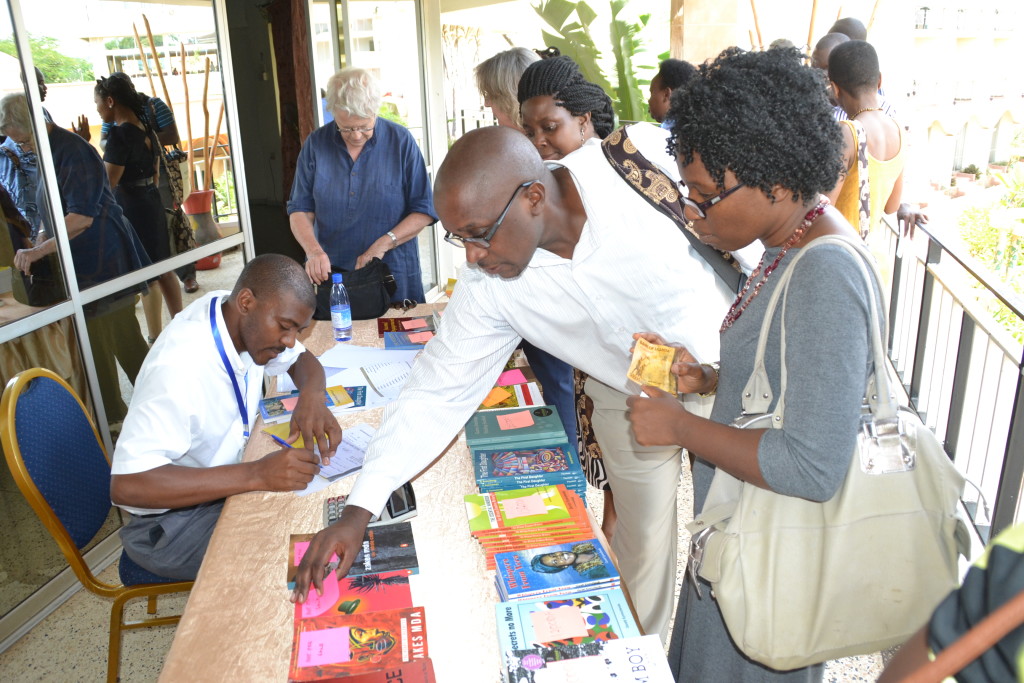
Reaching out, Danson Kahyana and others at the 2015 AWT conference in Kampala, Uganda.
Dear reader, I have only scratched the surface. There’s more out there. What I’ve provided isn’t by any means representative of African Literature. To imagine that a representation is even possible is like pretending to hug an elephant, the arms won’t meet! There is the language factor. I’ve only tapped into a mini-section of current Anglophone Literature, which means I’ve left out chunks of the continent’s Literature in French (Francophone), Arabic (Maghreb region), Portuguese (Lusophone), Swahili, and so on.
Feel free to add onto the list, and suggest what you’ve read or are reading.
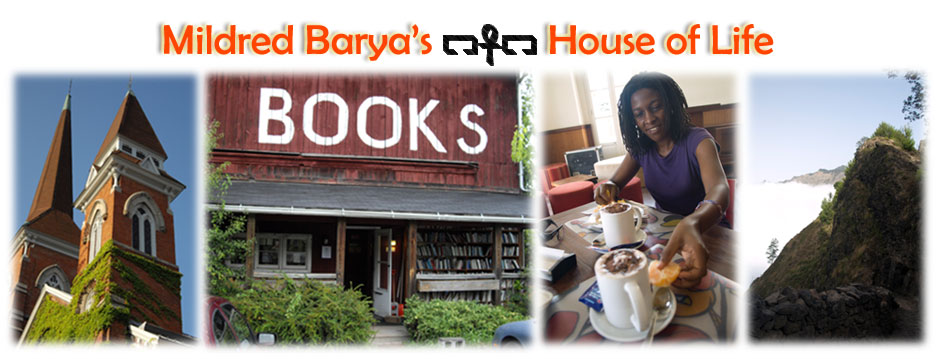



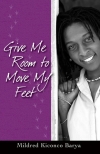
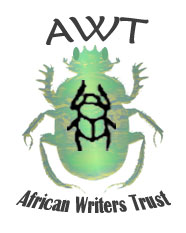
No comments yet.